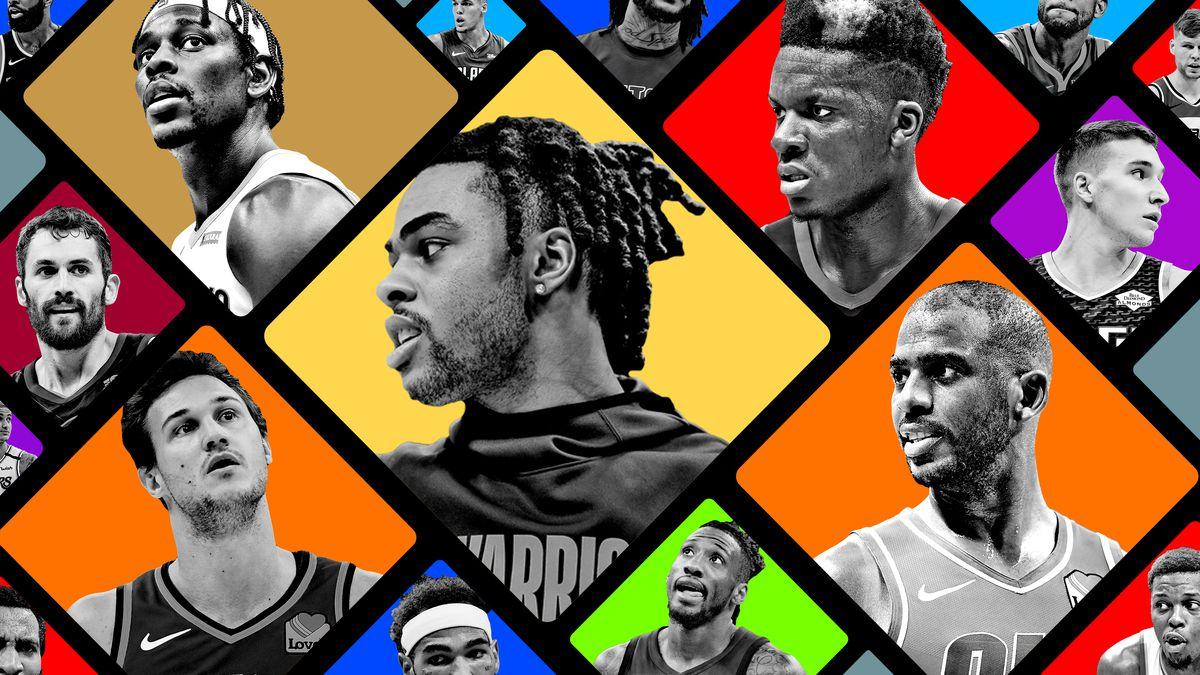Kyrie Irving assumes we see it, too. The Nets lost to the Sixers on Wednesday, 117-106, and the takeaway was, to him, obvious: Brooklyn needs better personnel. “I mean, it’s transparent,” Irving said after the game. “It’s out there. It’s glaring, in terms of the pieces that we need in order to be at that next level.” It was a quick, accurate conclusion for Irving to come to; the loss was his third game back after missing 26 straight, and put the Nets at 18-22, eighth in the East.
“I’m going to continue to reiterate it,” he said. “We’re going to do the best with the guys that we have in our locker room now, and we’ll worry about all the other stuff, in terms of moving pieces and everything else, as an organization down the line in the summer.”
“Collectively,” Irving said, “I feel like we have great pieces, but it’s pretty glaring we need one more piece or two more pieces that will complement myself, [Kevin Durant], [DeAndre Jordan], [Garrett Temple], Spence [Dinwiddie], Caris [LeVert], and we’ll see how that evolves.” It’s very much front-office speak, and the quote sounds like Irving stepping across the “them vs. us” dynamic, turning his peers into pieces.
A player talking about his teammates as if he holds authority over their employment status will always read as a disrespectful overreach. My guess is no one wanted to be next to Irving on the plane out of Philly. But I can’t fault Kyrie for having a vision. He left Boston to sign with Brooklyn this summer, a split that seemed mutually beneficial both to Irving and the Celtics, but which still drew criticism and boos from his former fan base. After requesting a trade in 2017 to leave LeBron James, Irving is no stranger to outsiders questioning his judgment, but committing to Brooklyn represented a new kind of free will that Irving hadn’t experienced before. He joined the Nets with the intention of heading the venture both on the court and off of it.
The Nets have often been compared to a startup. Kenny Atkinson made the analogy in 2017; Sean Marks has made it many times. “We were a penny stock. Maybe we’re worth 10 cents now. Someday we’ll be worth a dollar,” Marks said in February. “One day this franchise is going to be worth 10 bucks. But don’t wait to get in.”
Irving seems to think of Brooklyn in the same light: a modern organization worth investing in, one willing to take risks and bend to his and Kevin Durant’s asks. The superstars are not only part of this roster, they are also above it, with the leverage to change it. That distinction matters in the locker room. If the 2019-20 Brooklyn Nets are a startup, Irving and Durant are the investors, not the founders. It’s still player empowerment, just over other players, too.
Kyrie has staked his reputation here. He sounded like a front-office executive after the Sixers loss—very much resembling a former mentor of his—because of the role he has in the organization. Does that make him sound any less like an asshole? No.
Zoomed out, locker room relations have been the pitfall of Irving’s prime. He earned a worrisome reputation for being annoying and, at times, destructive during his two seasons in Boston. Former Celtics have told the media that their former point guard wasn’t to blame, that sometimes people just don’t fit. Maybe if it weren’t for the fresh supply of comments from Kyrie every other month, that defense would hold more weight. Locker room tiffs included, it’s Irving’s time off the court altogether that’s been the crux of his career. He’s never played a full 82 games in a season, reaching 67 games in 2018-19 and 60 in 2017-18, and has already missed 26 games this season—a stretch that led to the statistically misleading narrative that the Nets were better off without him.
The risk in building something of your own is the exposure if it doesn’t succeed. The worst hasn’t happened for Irving: Durant will return next season, and the Nets’ role players—those he wishes to keep, I guess—will continue to improve in the meantime. But there’s a seperate, condensed timeline for injury-prone players on injury-prone teams, one which, I’m guessing, stresses out Irving. A rough first year doesn’t fit with his vision. That’s transparent.
